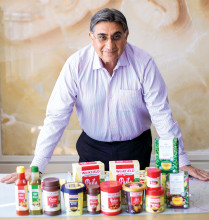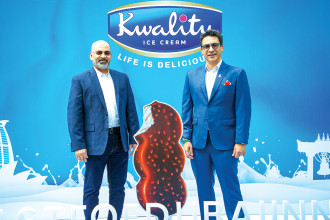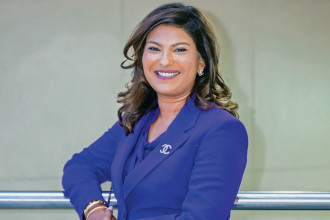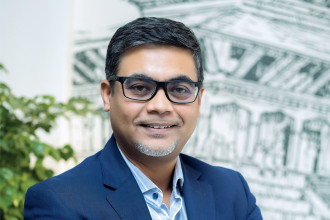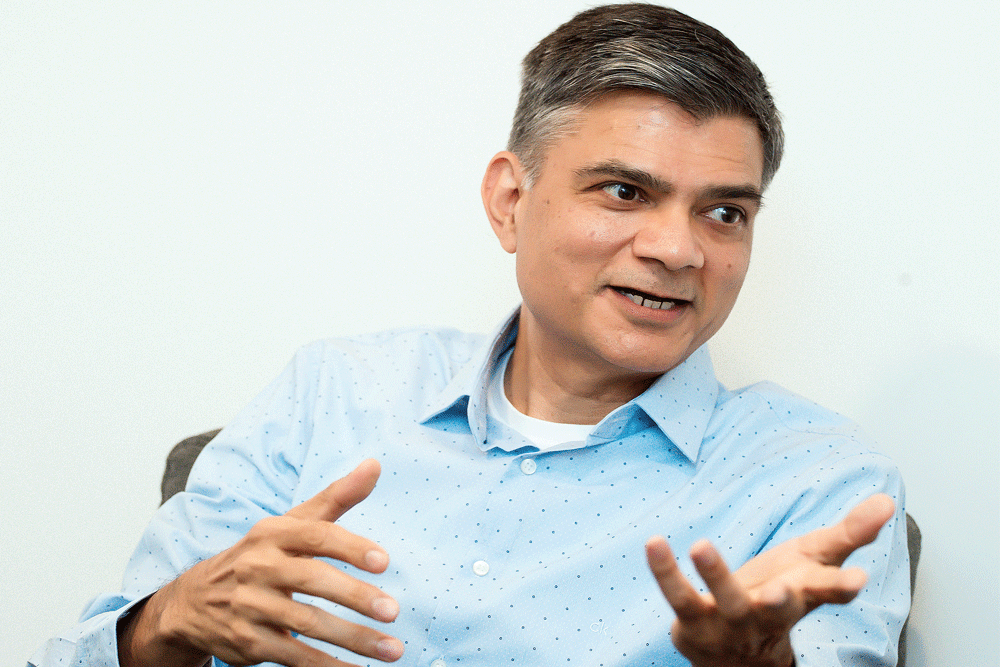
Dr Bharat Rawat
Associate Director Cardiology and Lifestyle Guide
Medanta Super Specialty Hospital, Indore, India
Dr Bharat Rawat, previously the Executive Director and Head of Cardiology of the Norvic International Hospital in Kathmandu from 1998 to 2015 is now the Associate Director Cardiology and Lifestyle Guide of Medanta Super Specialty Hospital in Indore, India. Dr Rawat is credited for the initiation of modern cardiology practice in Nepal and in the 17 years of his service at Norvic he was also the cardiologist to the former king and prince and prime minister. In his 20 years in the field of cardiology, Dr Rawat has been honoured with numerous awards and felicitations for his medical and social services in Nepal. He has also written scores of articles and authored a book on healthy lifestyle. Though based in India currently, he shares that Nepal is always close to his heart.
Dr Rawat was recently in Kathmandu for a talk programme hosted by Norvic in association with Business 360. The theme for the talk was ‘For A Healthy And Happy Heart’ where he spoke about mindfulness, wellness, the link between emotions and heart health, making conscious choices and taking one’s health into their own hands. Prior to the talk, Business 360 had the opportunity to speak to Dr Rawat about cardiology, lifestyle and the medical sector in general. Excerpts:
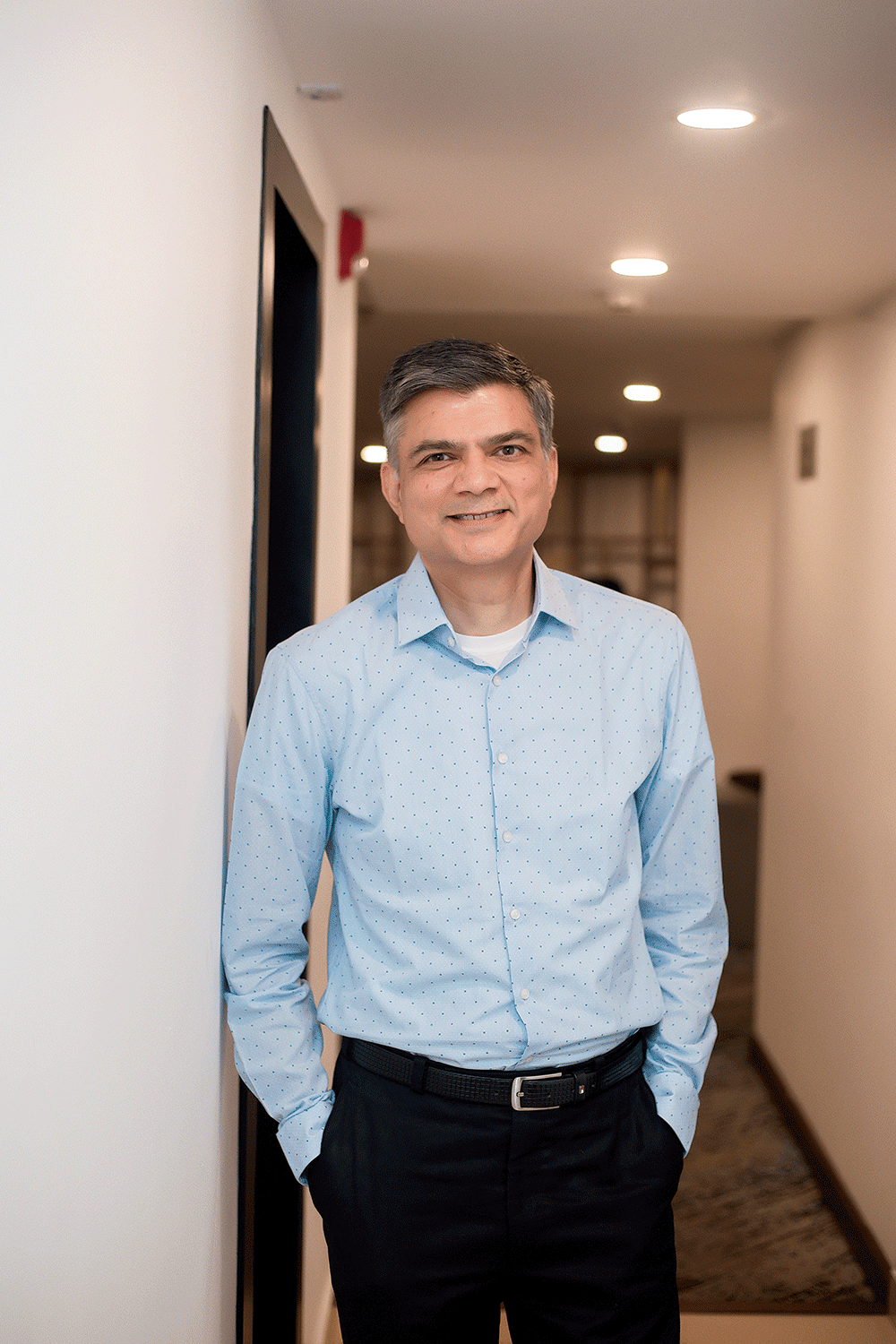
According to the latest WHO data published in 2020, coronary heart disease deaths in Nepal has reached 19,677 or 12.26% of total deaths. To what do you attribute this significant rise?
Essentially, all South Asian countries are witnessing the same. In developed countries, the risk of coronary artery diseases has been reducing over the last couple of decades. However, the situation is exactly the opposite among South Asian nations and there are more people who are now suffering from heart diseases. Primarily, there are two reasons for this increase which are unhealthy lifestyle and pollution. Air pollution in the South Asian region is worsening and also the lifestyle of people is also not very healthy with a lot of stress these days. The other factor is our genetic disposition. Even when they go to other countries, South Asian children face a greater risk of contracting a heart disease, which means it is not only the environmental factors that come into play. Genes also affect us a lot.What are some basic things that one could do to keep their heart healthy?
This is a very pertinent question given the fact that the number of people suffering from some or the other form of a heart ailment has been rising in recent years. The basic thing that we have to realise and strictly adhere to is to eat our dinners a bit early. Having an early dinner is very essential and also it has to be light. Do not consume anything that is heavy for dinner. The other necessary rule to follow is not to be engaged in mobile devices after 10 pm. Our sleep has to be good because it is very important. The other thing I would advise is to wake up early and spend an hour or so doing some exercise. I would also advise people to laugh loudly around eight to ten times a day. I have seen that many people are living with a lot of tension, so laughter helps lighten up the mood. The other important aspect is to eat homemade food as much as possible. What usually happens is many people say that they eat food at home but what are they eating? Have we ever taken that into consideration? Even if I ask you right now, the answer will probably be that you eat at home most of the times but what you are eating are more often than not biscuits, cookies, bread, salty food items, and sweets. But have you ever stopped and given a thought to the fact that all these items are actually not made at home; you may be eating them at home but they are not cooked in your kitchen. The problem is that there are food items that are made outside which we bring home and consume and we have this wrong sense of belief that we are eating at home. And all of these products have transfats. So, my advice is that you should eat less than 10% food that is cooked outside. We should also reduce the intake of sugary foods and try not to use refined edible oils as much as possible. Instead of refined oil, filtered oil is a lot better for your health. I would again emphasise on early dinners that are light. A late dinner affects your sleep pattern, also causes indigestion and you start snoring a lot. Even snoring is a risk factor for heart disease. Most people assume that snoring means one is having a good sleep but it is actually unhealthy.Having worked in Nepal for a long period and returning at regular intervals, how do you view the medical sector here?
I worked in Nepal for about 17 years. When you look at India too all the cities have hospitals and there are plenty of facilities for treatment. However, there is always less conversation about prevention measures because when we start delving into prevention issues then it will hurt the industry. Everybody should understand that nobody will know when they are going to get a heart attack. For instance, if you are travelling to a remote place in Nepal and at that moment if you get a heart attack then what is the point in having world class centres in Kathmandu? Or maybe you get stuck in a traffic jam on the way to the hospital. So, prevention is ‘the’ thing that we all have to understand. Prevention is the most important factor but nobody talks about it. And it is not that there is lack of awareness among people. Who does not know that smoking is bad for health or that you need to exercise on a regular basis? The fact is that even though we have the awareness on what is required to be healthy we are simply not following the guidelines. The reason why we are not following those guidelines is because we are not at peace. We lack peace and serenity in our life. Unless we achieve that inner peace, we will always be doing things that are forbidden. Moreover, life has become so fast and we are all worried about only achieving materialistic goals and in this particular situation, we are bound to not follow a healthy diet plan or lifestyle.We often hear the terms heart attack and cardiac arrest being used by doctors; what is the difference between the two?
Heart attack and cardiac arrest are different in the sense that cardiac arrest is one of the complications of a heart attack. Cardiac arrest means that the heart beat has stopped. A heart attack is a situation in which the supply of blood to the heart is suddenly blocked, usually by a blood clot; death of heart muscles because of some clot on the coronary artery. Due to the clot a muscle could be affected in the heart. So, heart attack is a broad term. All heart attacks do not lead to cardiac arrest. Cardiac arrest is like death. So, normally about 8-10% heart attack patients suffer from cardiac arrest after they reach the hospital and that is if you reach a hospital. If a hospital is not accessible, then more people can die due to cardiac arrest. Hence, cardiac arrest is a terminal complication of heart attack but most patients of heart attack do not get a cardiac arrest.What do you consider to be qualities of a good doctor?
The number one quality of a good doctor is that can they treat their patient like a family member. One of my professors used to always advise me to follow the M&D rule, which basically means mum and dad rule. Let’s say the patient is my mother or my father then how would I have treated them? If I can follow the same thing with any other patient, then that makes a good doctor. The second aspect is if a doctor can be available when there is the need and the third is the behaviour of the doctor, which means the patient should feel more confident after visiting the doctor. It should not be such that the patient starts getting more scared or anxious after meeting the doctor. The last important component is if the doctor can give ample time to the patient. What I would like to convey is that whenever you meet any doctor please ask for do’s and don’ts. Don’t just ask for medical tests and medicines. In all these years of practice I have noticed that literally all patients are always focused on the tests that need to be conducted and the medicines that need to be prescribed. So, don’t ever leave the doctor’s office without asking the do’s and don’ts.
What are your views on medical ethics?
Ethics is a very important component in any sector actually and more so in the medical field. What I would say is everybody should follow the law be it the medical doctors or the patients and their families. A doctor has to start treating the patient well in the hospital, and they should have good documentation, and at the same time the patients and their family members should also not misbehave with the doctor. We have seen that at times when something goes wrong then there is pandemonium in the hospital. Due to that, doctors have also become defensive and then the advantage is lost. I would say it all boils down to trust. I always say there are two occasions in life when a person gambles – one is when a person is getting married and the other when choosing a doctor.The pharma industry is now attributed to the rise in ailments due to unnecessary prescriptions and consumption besides the side effects of these medicines. What are your views?
What we have to understand is that every medicine has a side effect but normally they are well tested before they are allowed to be sold in the market. The main thing is what I mentioned earlier – doctors should treat their patients properly. They should not over-treat or under-treat their patients. I think this is one big challenge that every doctor faces and it is not a very easy thing to do. You had asked earlier about the qualities of a good doctor and this is again one – can you treat your patient properly. And it is the right of the patient to know about their treatment. The patient can ask and should be told by the doctor about which medicines need to be taken and which medicine has what type of side effect. Patients should develop the habit of asking their doctors about the medicines being prescribed and for what purpose they are being prescribed.What can be done by the government to ensure health equity and access to healthcare by all?
This deals with the country’s policy. For instance, in India the government has started a new scheme called Ayushman Bharat Yojna under which each citizen is entitled to treatment worth up to Rs five lakhs. Even in our hospital in Indore, which is a big private hospital, every day four to five patients undergo heart surgery that is completely free of cost – angioplasty is also free and bypass surgery is also free. So, this policy was drafted by the government to help people who are not rich and can’t afford costly treatment. I think such policies should be introduced by the government in Nepal. But again, the country’s economy has to be good for such policies to be introduced because the government should have the necessary funds. When the economy is good, I think the government could channel more funds to the health budget.Are expensive doctors and hospitals really better?
Such hospitals may be more easily available and their infrastructure will be better but it is not certain that the doctors themselves are better. There are many good doctors who are working in government sector but if those doctors are not taken care of then gradually, they will leave the government hospitals. Initially, every good doctor was attached to some government hospital. You can also see that the death ratio has decreased over the years because of the availability of good doctors. Previously, if you were a good doctor you would be attached to Bir Hospital or Teaching Hospital and till date, we remember those doctors and respect them a lot. However, what has happened over the years is that private hospitals provide better infrastructure and better salaries and good doctors tend to leave government hospitals. Another reason why some good doctors leave government hospitals is due to the political interference that makes it difficult for them to work.What are you views on alternate medicine and healing?
Alternate medicines are definitely important, not only for our health but also for the health of our planet. Alternate medicines are important for the earth too because they are more natural. I think it has a big value for nature and there should be more research done in this area and we should be more open to discussions on which patients can benefit from allopathic medicine or homeopathy or Ayurveda or some other type of treatment. I think doctors and experts of other fields should discuss with each other. I think we should accept different forms of treatment that are available.Could you please elaborate on medical preparedness in the post Covid world and also considering the slew of new health scares like monkey pox?
My answer to that would be that one should be ever ready. I would say keep the immunity level good so that diseases do not affect your body. The other aspect is that our lifestyle should be such that diseases from animals do not start harming human beings. Sometimes what happens is we conduct various types of experiments that can cause a flare up of new diseases. Lastly, we have to accept that uncertainty is a part of life. Basically, we have to be prepared for any kind of uncertainty that could occur because the rule of life is that it is going to be unpredictable. We should be able to accept that unpredictability of life. READ ALSO:
Published Date: September 30, 2022, 12:00 am
Post Comment
E-Magazine
RELATED ETC


